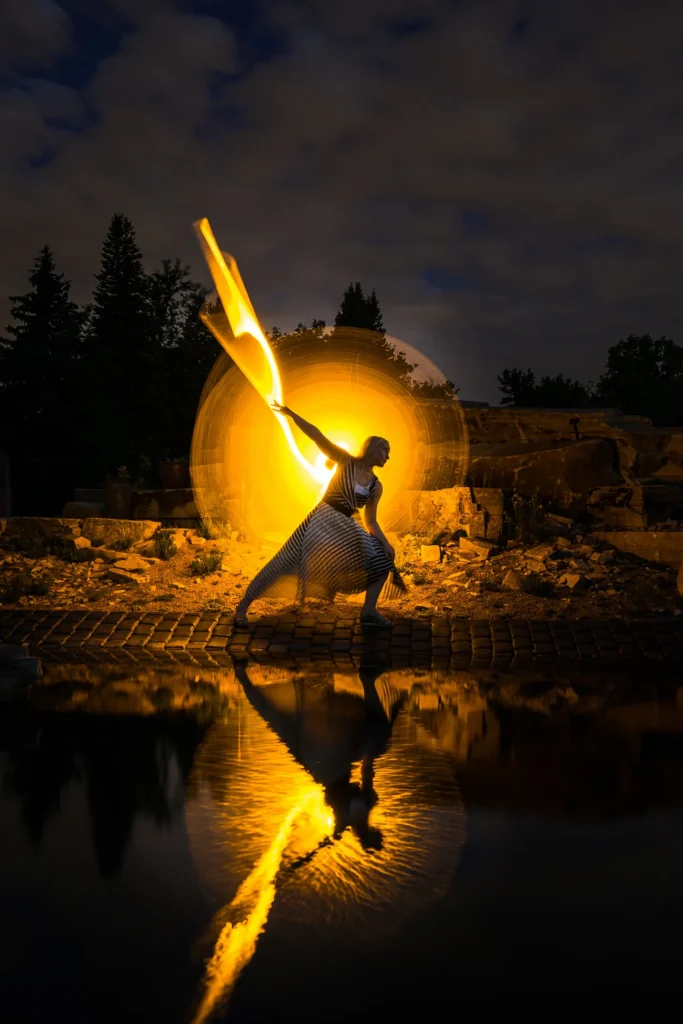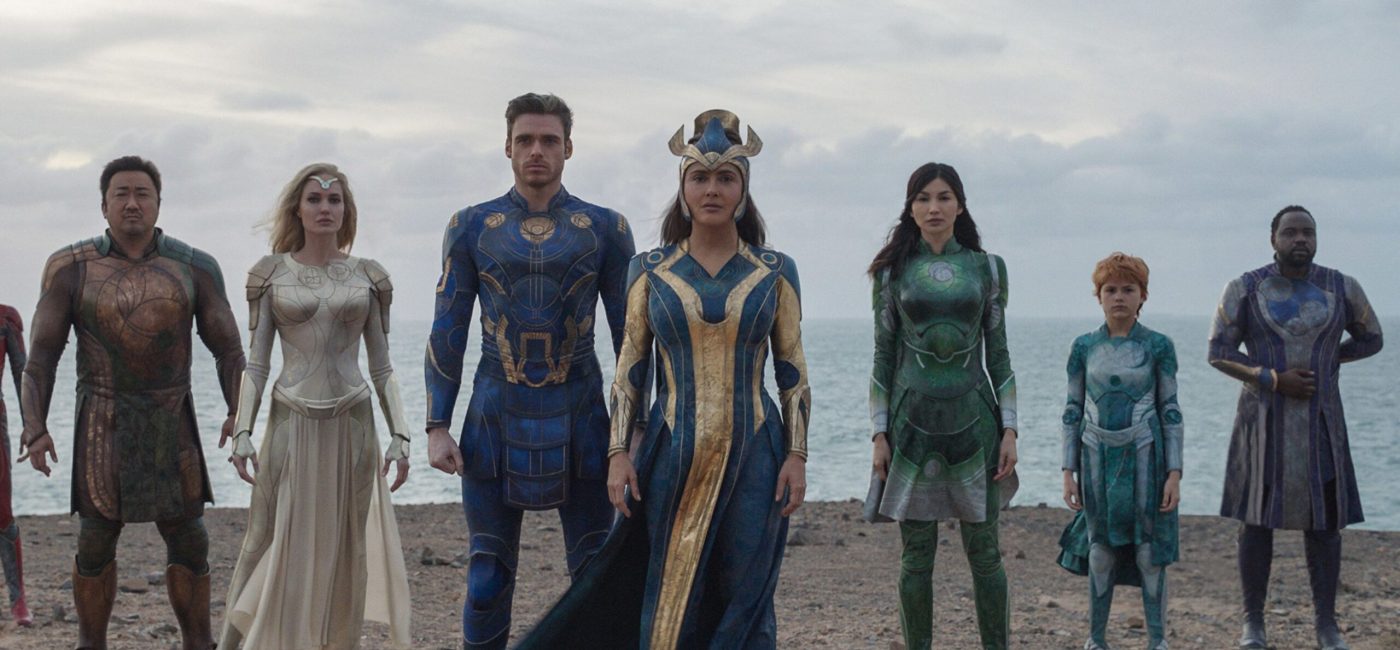Embracing past, present and future as a practice

Prophecy is an everyday practice. We all make utterances about the future, the way we will live in it and the way things will happen without a second thought. Learning to live with the prophecies and visions we conjure up is a practice we partake in every day. We aren’t aware of our prophecies, visions or even the things we do to hold present, past and future in our minds without buckling. But, somehow, in between battling lesser evils, functioning through trauma and being one of the strongest Eternals, Thena taught me her tricks.
The opening sequence of the film takes us to Mesopotamia, 4500 B.C. The screams of bystanders warn a little boy away from a danger he can’t see or escape. This child’s father is devoured in one fell swoop, but the child is saved by the intervention of the Eternals. They leave him with a dagger, a symbol of the cuts between his past, present, and future. The scene cuts to a city screen, advertising the same blade, now housed at a museum exhibition as a relic of prehistoric times. Like the dagger, a tool, a weapon, then a relic, our very being, our roles and our responses to our unique contexts are bound within time in a unique way. In the way fate bends our paths, we are compelled to lessons that carry us home.
Thena as a character is fantastic. She’s strong, beautiful, capable and unbeatable. She is the apex predator Sersi describes towards the beginning of the film. In battle, she is calculated and brave. This is why it’s so confounding when she has her first breakdown. (It is also interesting to me that this breakdown comes after viewing war without being able to intervene.) Thena’s first assertion of prophecy is, “It’s too late. Everyone is going to die.”
As her rampage begins, Thena attacks Gilgamesh. She fights him heavily and he takes on the responsibility of keeping her safe. Ajak pushes back against this desire, saying that Thena’s mind is fractured under the weight of her memories. But, Gilgamesh is a wonderful friend. He understands that the weight of living with prophecy is not one that can be carried alone. He experiences frustration, love, happiness and caregiver fatigue. Gilgamesh requests that Ajak allow Thena to keep the same memories that overwhelm her mind with fear. And in this way, he tells us that, to live with prophecy, we can’t erase our memories. We must embrace them.
“Remember who you are.”
Our past taunts and our futures mock. They say to us that, where we are headed, there is no safety or love. They say to us that we will forget ourselves, that we will completely lose ourselves under the weight of living. Thena meets these questions with curiosity. Perhaps, in the company of Gilgamesh, she has learned to be comfortable with the unknown, with the unprecedented nature of her existence. So, in reply to her doubts and fears, Gilgamesh reminds her of the fact that even warriors who can’t fight are warriors still.
“What if I can’t fight anymore?”
Often, the morphing of time and experience carries with it changes in being as well. These changes of form seem to rob us of ourselves and yet, transformation is a gift. And so when Gilgamesh says “stay” to Thena, the warrior goddess, in the heat of battle, she realizes she must stay still. In the face of chaos, she must stay still. And in her stillness, even Ikaris is turned to a warrior who does not fight. In Thena’s stillness, she grasps the truth. This is what carries her through transformation.
“I’ll remember.”
Witnessing Thena’s grief after the death of Gilgamesh is sacred. The thing she feared has occurred and yet, she is still here. As she scatters the ashes of her beloved, Thena is present with the grief. The process of grieving has already been happening for her internally. In a strange way, the rites of grieving allow a release for all the pain, past and present.
“When you love something, you protect it.”
After Gilgamesh’s death, Thena emerges in strength and softness. In his care, in the terror of trauma and the mundane cycle of day-to-day life, Thena understood how to love. After his death, she embodies transformation, from warrior to wounded, from wounded to whole (somehow). And so when she finally encounters the evolved Deviant who killed Gilgamesh, Thena knows how to carry her prophecies. She remembers the joy and embraces the pain of her memories. Thena fights the Deviant whose life she’d spared in the darkness of the cave.
“I remember.”
After killing the Deviant, Thena emerges from the cave. She is who she has always been. The warrior goddess has learned how to live with haunting scenes from her past, heart-breaking events from her present and the chaos of prophecy.

